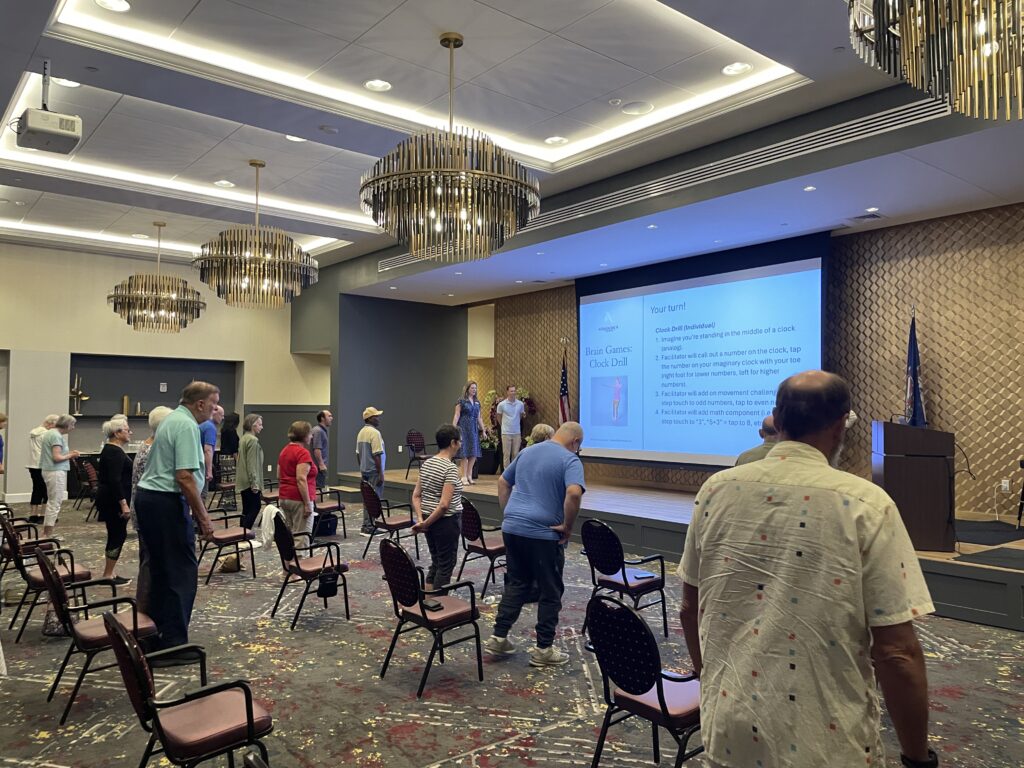
When it comes to aging, we tend to assume that cognition gets worse as we get older. A classic example is getting up to go do something in another room but forgetting why you got up when you make it across the house. But what if we told you that aging doesn’t have to be this way?
Last summer, Morgan Lamphere of Lauren Rose Senior Advisors brought a brain health series to Harbor’s Edge. This was a three-part series catered towards anyone who wanted to learn more about how to keep their brain healthy, as well as those who were actively living with cognitive loss. Each session focused on a different element that can help improve cognitive functioning – music, food, and movement.
For a little over a decade, scientists have been studying a subset of people they call “super-agers.” These 80+ individuals have the memory ability of a person 20 to 30 years younger. Most of the research on aging and memory is focused on those who develop dementia or other memory related issues as they age, but what do we know about these so-called super-agers?
Neuroscience is showing that these individuals have less atrophy than their peers’ brains. Specifically, they had more volume in the areas of their brains that are used for memory and the connectivity between those areas and the front of the brain were better preserved. Ultimately, this translated to a stronger resistance to age-related cognitive decline.
So, how do you make sure your brain is in tip-top shape so you can become a super-ager? Unfortunately, based on the current research, it seems that these super-agers probably just have some sort of lucky predisposition or genetic resistance mechanism in the brain that scientists don’t understand yet. However, there are a few key differences in health and lifestyle behaviors, all of which Harbor’s Edge can help you improve upon.
Mainly, super-agers had better physical health, blood pressure, glucose metabolism, and performed better in mobility. They also exercised more in middle age than non-super-agers and reported better mental health. You don’t need to have the brain of a super-ager to have a healthy brain later in life.
While there isn’t a recipe for becoming a super-ager, scientists do know that, in general, eating healthily, staying physically active, getting enough sleep and maintaining social connections are important for healthy brain aging. Harbor’s Edge can help make sure you’re getting all the nutrients you need, staying fit, and making new friends.

